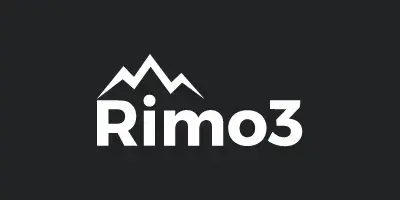Patch360 Intune Pipeline & Auto-Update
Patch360 now includes “Export to Intune” as the default pipeline for applications imported from the Patch360 catalog.

This pipeline will Import, Discover, Baseline and the Test successfully onboarded applications against the Target OS. Applications that pass the Intelligent Smoke Test on the Target OS will automatically get exported to the default Intune Instance, which can be configured in the Intune Settings:

NOTE: If you only have 1 Intune instance in your tenant this will automatically be the default instance. If you have multiple Intune instances, then the first Intune instance added to your tenant will be the default instance.
When applications are imported from Patch360 new versions will be automatically imported when they are added to the Patch360 catalog. These packages will automatically be exported to Intune if they pass all the automated Rimo3 tests.
Notifications
In addition to Notifications that are displayed in the Workspace360 UI, you can now configure notifications to be sent to specified e-mail addresses and/or Teams.

The new Notifications settings can be configured on the Notifications tab of the Settings screen. You can enter a list of e-mail addresses, press enter after each e-mail, and/or enter an incoming webhook URL for Teams. For details on configuring a Webhook see this article: Create an Incoming Webhook - Teams | Microsoft Learn
Initially e-mail and Teams notifications include notifications for new versions of applications that have been automatically import from Patch360:

Updated Package Details Screen
The Package Details page has been refreshed and updated as part of ongoing user experience improvements. The page now displays additional information imported from SCCM, including the application icon, Description, Privacy URL and whether to feature the application in the Company Portal.

Detection Rules
Additionally, the Package Details page now displays Detection Rules imported from SCCM, including whether or not the rule can be exported to Intune.

Intune Export Options
In addition to the Intune export timeout the Package Details page now includes fields “Install Behaviour” and “Intune device restart behaviour”. These fields are either imported from SCCM or set automatically based on Discovery information.

Re-Ordering Dependencies
When editing the details of a package it is now possible to re-order dependencies by dragging and dropping then into the desired order.

Changing the order in which dependencies install will trigger a Discovery, if one has not yet been successfully completed, or a Smoke Test to validate the new install order.
File Version Included in Discovery Information
The Discovery section has been revised to more clearly show Discovered items and the Discovered Executables and Shortcuts table now includes the version of Discovered executables.

Default Detection Rules Include File Version
When exporting an application that was not imported from SCCM, and therefore does not already have detection rules associated with it, the default detection rule created by Workspace360 now includes the version of the file used in the detection rule to ensure more accurate detection of different versions of an application.
Application Version Column on Dashboards and Reports
To help identify different versions of the same application, a version column has been added to all dashboards and exportable reports.

API Access Token Changes
Access tokens for the Rimo3 Public API are can now be retrieved through a newly established API Endpoint, https://rimo3cloud.com/api/v2/connect/token, full details for implementing the new endpoint can be found here: Rimo3 API - New endpoint for generating an API Access Token
You can now also Authorize in Swagger using you API ClientId and Secret without needing to generate the Bearer Token separately:

